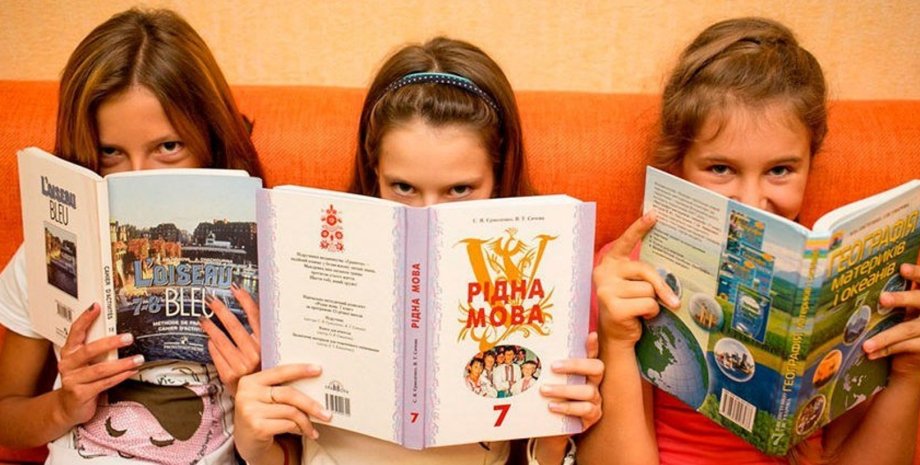
He noted that the Russian enemy continues to counteract the Ukrainian identity, influencing the minds of young Ukrainians through social networks, telegrams and media space, especially in the south and east of the country. Kremin emphasized that there was a decrease in the share of participants in the educational process, who consider the Ukrainian language to be native: among students - by 17%, parents - by 11%, teachers - by 8%.
The use of the Ukrainian language in the educational environment also decreased and the presence of Russian in the Internet space and social networks has increased. Of particular concern is the language environment among young people. Only 37% of students communicate with friends in Ukrainian and 39% at home. In addition, the number of students who prefer the Ukrainian language on the Internet decreased by 10%.
"The problem I voiced is to slow down the process of Ukrainianization in certain areas such as education, Internet and private communication. These are interrelated environments that create a closed circle. For example, bilingualism leads to bilingualism in the educational process and ultimately , in social networks, "says Focus Kremin.
According to the Ombudsman, according to the monitoring of the State Education Quality Service in recent years, teachers, students and parents confirm the reduction of the use of the Ukrainian language in the educational process. This trend is noticeable in schools, especially during distance learning, when teachers more often resorted to the use of Russian -language materials.
Also, the analysis of youth activity on social networks, type Tiktok and Instagram, showed a decrease in the share of Ukrainian content. This is especially true for students and students - the category that has the greatest impact on the language perspectives of the country. But the data of the Ukrainian Institute of Books testify to the positive dynamics of reading in Ukrainian. However, linguistic duality in everyday life and educational environment remains a problem.
"Therefore, taking these three studies, it is easy to understand that it is about young Ukrainians who are devoid of stable linguistic environment in the educational process. Accordingly, it affects their language culture and behavior in social networks where no one limits them. in the home environment, " - continues the linguistic Ombudsman. Taras Kremin emphasizes that this alleged decline in Ukrainianization is not something sudden.
Studies that were conducted in the adult population and did not take into account children under 18 years of age, who at that time were mostly at distance learning. During zoom conferences, Google Meet, etc. , teachers allowed themselves to use the state language only fragmentary. These could be separate parts of lessons, films, or texts, or tasks and taking offs in the state language. This situation was observed both in schools and universities.
However, after returning to full -time training, the Ministry of Education and other institutions were able to organize surveys among participants in the educational process. In particular, the State Education Quality Service has conducted an open format with its own methodologies. "The results indicate that in general, there is a positive dynamics in Ukraine in Ukraine. However, almost no one has conducted systemic surveys among children.
This is the main threat, since the lack of research among the youngest can hide real problems," Ombudsman says. Kremin emphasizes that today Ukraine does not have complete information about the situation with children abroad. There are about half a million Ukrainian children with their parents. According to him, complaints are now coming, for example, from Berlin or Prague that some Ukrainian citizens want to learn Russian.
Moreover, some Ukrainians, instead of contacting Saturday or Sunday Ukrainian schools, went to training centers created by the structures of the aggressor country. "This is a serious question. We see how hostile propaganda acts through their centers, educational initiatives and cultural projects. This situation is a challenge for our national security.
Great hope for the coming meetings initiated by the Ministry of Culture at which we will ask all ministries to focus on the issue The Ukrainian language. There are also some information threats, such as through social networks. Tiktok and Telegram are spreading Russian narratives, which are particularly affected by young people. Today it is necessary to consider the issues of regulation of the Internet in the territory of Ukraine.
This should be a priority for both the Commissioner and the National Security Council. "The issue of protecting the Ukrainian language is much deeper than it may seem. It is not only a cultural issue is the basis of our statehood and national identity. We need to set all the accents and ensure proper protection of language as part of our constitutional system," Kremin emphasizes.
Ombudsman urged parents to take care of their children more closely, encourage them to speak Ukrainian at school, at home, social networks and when choosing cultural products. He stressed that the language of Ukraine now depends on what language the children speak. Earlier, Focus told how it is officially called the residents of Sumy-(spoiler) not "Sumy".
All rights reserved IN-Ukraine.info - 2022